Let’s be honest: if you’re going to make it as a professional blogger, you need to understand the types of blogs that make money.
It’s all well and good writing about your passion.
But if there’s no chance of making money from it, you’ll only ever be a hobby blogger.
Fact is, most people don’t make money blogging (or at least, not enough to become a full-time blogger).
According to ProBlogger, about two-thirds of bloggers earn less than $100 a month from their blogs.
That’s less than $3.50 a day.
On the flip side, about one in 10 earn $1,000 – $9,999 a month, and one in 25 make more than $10,000 a month.
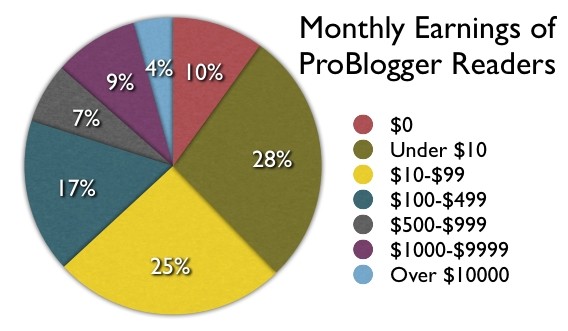
Those “success stories” are the people who’ve found profitable blog niches and monetized them effectively.
With that in mind, in this article, we’re going to:
- Shine a light on those profitable blogging niches
- Focus on a successful blog within each niche
- Discuss how you could make money blogging in that niche
- Identify potential sub-niches and topic areas within each niche
Hopefully, you can take our findings and apply them to your own blog.
And make a ton of money.
Sounds good?
Let’s dive in.
10 Types of Blogs That Make Money
1 Finance Blogs
Are you crazy about credit cards?
Loopy about loans?
Mad about mortgages?
I could do this forever, but you get the picture.
If any (or all) of those things apply, you could start making money with a finance blog.
Finance and business blogs aim to give useful financial advice to their audience.
It could be general advice, or it could be tailored to a specific demographic, like college students, parents, or people approaching retirement.
As its name suggests, Money to the Masses doesn’t target a specific audience niche.
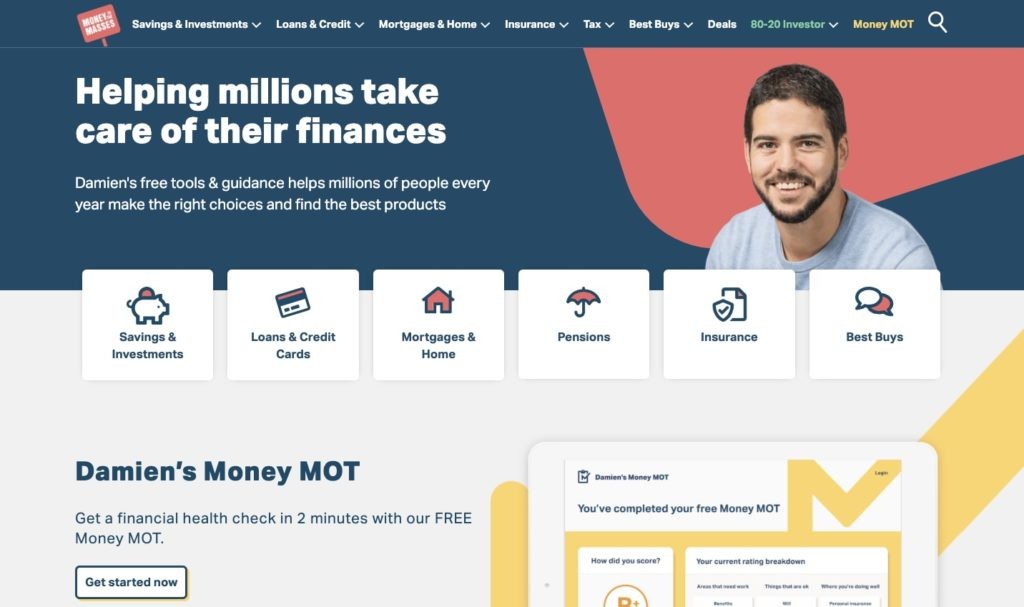
Instead, its goal is to help millions of people make smarter financial choices by steering them toward the best financial products.
That’s how finance blogs typically make money.
They recommend financial products that they’re paid to promote.
Or they monetize through financial affiliate programs, which means they add affiliate links to the credit cards, savings account, or loans they reference in their finance blogs. When someone clicks one of those links and buys the product in question, they earn a commission.
Clearly, Money to the Masses does that pretty damn well, with Ahrefs estimating it attracts 117,000 organic visitors a month with a monthly value of $273,000.

Ahrefs shows us the site is targeting a bunch of high-intent keywords, such as:
- best regular savings account
- best childrens savings account
- best 10 year fixed rate mortgage
- best way to invest 100k
If you can rank strongly for terms like those, you’ll be well placed to make money online from a finance blog.
Given the vast range of financial products and services available, combined with the fact that literally everyone has a vested interest in making smart financial decisions, you shouldn’t be short on blogging ideas.
2 Travel Blogs
Travel and blogging are natural bedfellows.
Most people picture a blogger as someone who jets around the world, laptop and smartphone in hand, staying in high-end hotels and sipping cocktails on beaches, then earning money by writing about it.
Of course, the reality isn’t always like that.
Lots of travel bloggers are little more than enthusiastic hobbyists.
But plenty of people out there make money by running a travel blog.
People like Nate Hake, founder of Travel Lemming — one of the most popular blogs in the travel niche.

Nate and his team have built a vast library of content offering expert insights on the practicalities of traveling in destinations across the world.
But how does Travel Lemming make money from all that blog content?
Well, it has two main avenues to monetization:
Firstly, it uses AdThrive to run banner ads across its site.
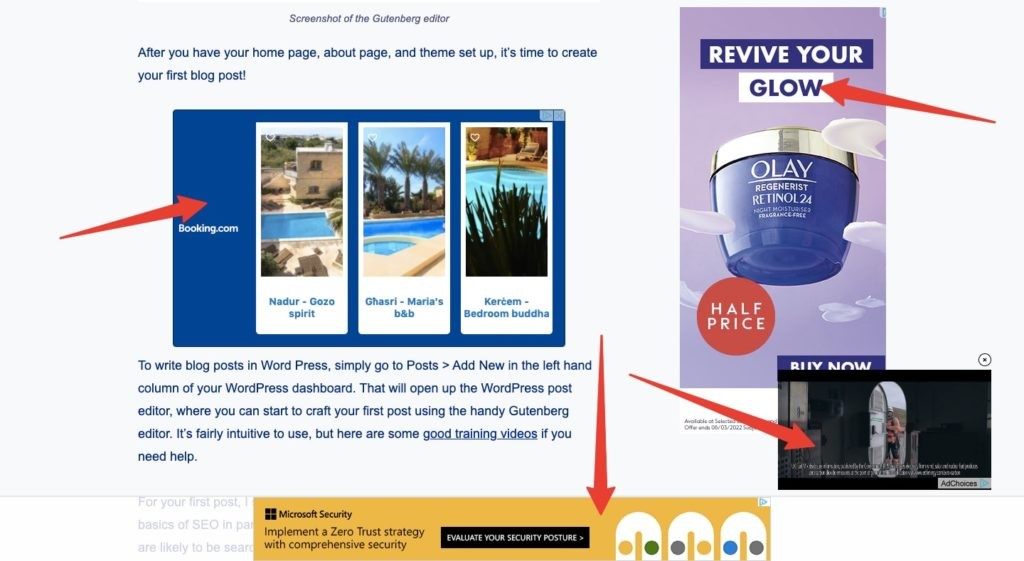
3 Lifestyle Blogs
Unlike the other blogging niche examples in this article, lifestyle is a pretty nebulous term.
By which I mean lifestyle blogs can basically be about anything.
Generally, they’re about the blog owner’s or editorial team’s personal experiences.
That can encompass fashion, dating, culture, careers, travel… and many other things.
Many lifestyle blogs that make money effectively build a sort of “cult of personality” around their founder.
We think Person X has an incredible life; we aspire to be like them, so we follow them on social media and read their blog content.
Camille Styles is a great example.

Camille and her team write about food, party planning, interior design, beauty, and wellness.
The only thing tying those disparate blog niches together is Camille herself — if you didn’t care about her lifestyle, you’d have little incentive to read her articles.
Evidently, lots of people do care, because Camille Styles generates 50 million impressions across its website and social channels every month.
With so much attention (and traffic), the site is ideally placed to monetize via ad networks like AdThrive, Ezoic, and Mediavine. Google AdSense is another, but the payouts are so low that we don’t recommend using it.
To a lesser extent, it also makes money through affiliate marketing, incorporating links into relevant articles such as a guide to Camille’s fall living room redesign.
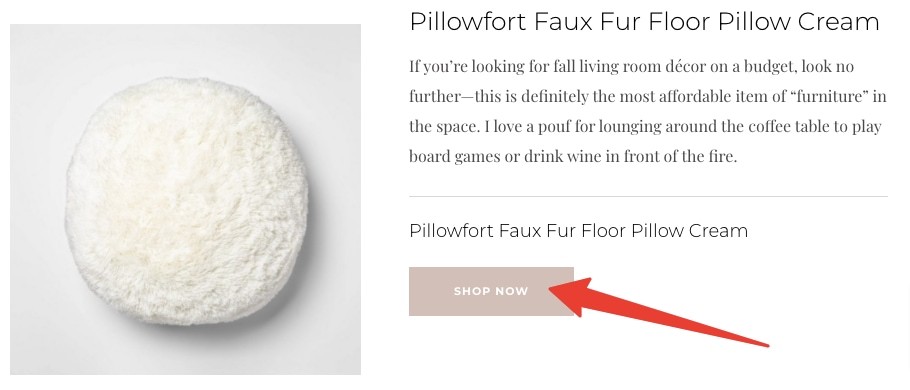
4 Health and Fitness Blogs
Much like the finance niche, it makes sense to start a fitness blog because everyone cares about their health.
That gives you a huge audience to target and a wealth of potential blog topics to cover.
There’s no single way to earn money with a fitness blog.
Instead, there are multiple avenues of monetization, as we can see by exploring Mind Body Green, one of the health and fitness niche’s most popular blogs.
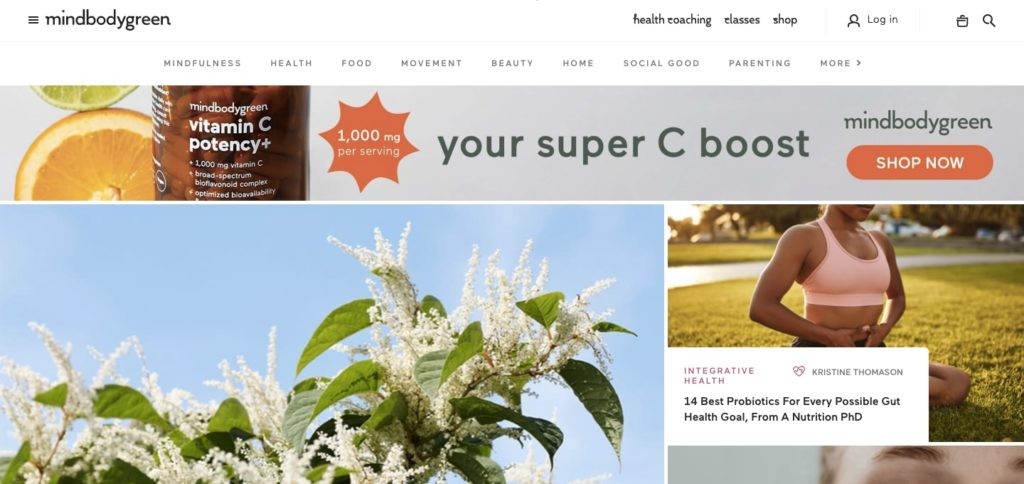
Affiliate marketing is part of its money-making “toolkit”.
The site’s writers add affiliate links to a wide range of content, covering everything from top makeup tips to the best probiotics.
Mind Body Green also works with advertising partners to create sponsored posts, like this one on choosing the right pair of leggings:

It runs banner ads across the website, allowing it to earn a cut from every person that clicks.
If you like what you read on Mind Body Green, you can pay for an online class covering topics like yoga, meditation, and plant-based eating.
As if that wasn’t enough, it also has its own online store selling health supplements and personal care products…

…and even runs online courses on health coaching and functional nutrition training.
Realistically, you’re not going to offer all that stuff from the moment you launch your first health and fitness blog.
But it just goes to show how many options there are to expand and scale an online business in this niche.
5 Beauty Blogs
Inevitably, there can be a fair degree of crossover between beauty, fashion, lifestyle, and even travel blogs.
For instance, a lot of beauty bloggers will naturally also write about what’s in their wardrobe, while fashion bloggers often cover makeup tips.
But there’s plenty of scope to earn money with a blog focused purely (or largely) on the world of beauty.
Fleur DeForce is one such website.
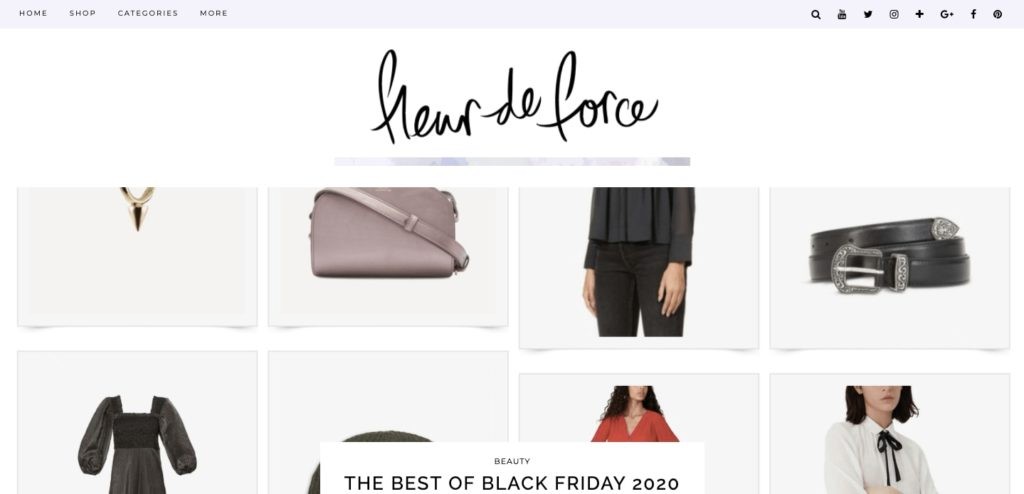
A lot of sites in this niche have popular YouTube channels, and Fleur DeForce is no different.
Launched back in 2009, Fleur’s YouTube has more than 1.3 million subscribers, so no doubt she makes plenty of money through banner ads in her video content.
But that’s only one way to make money as a beauty blogger.
Unsurprisingly, affiliate marketing plays a big part. Fleur adds affiliate links to product reviews and other commercial-themed content, such as her L’Oreal’s Skin Paradise review.
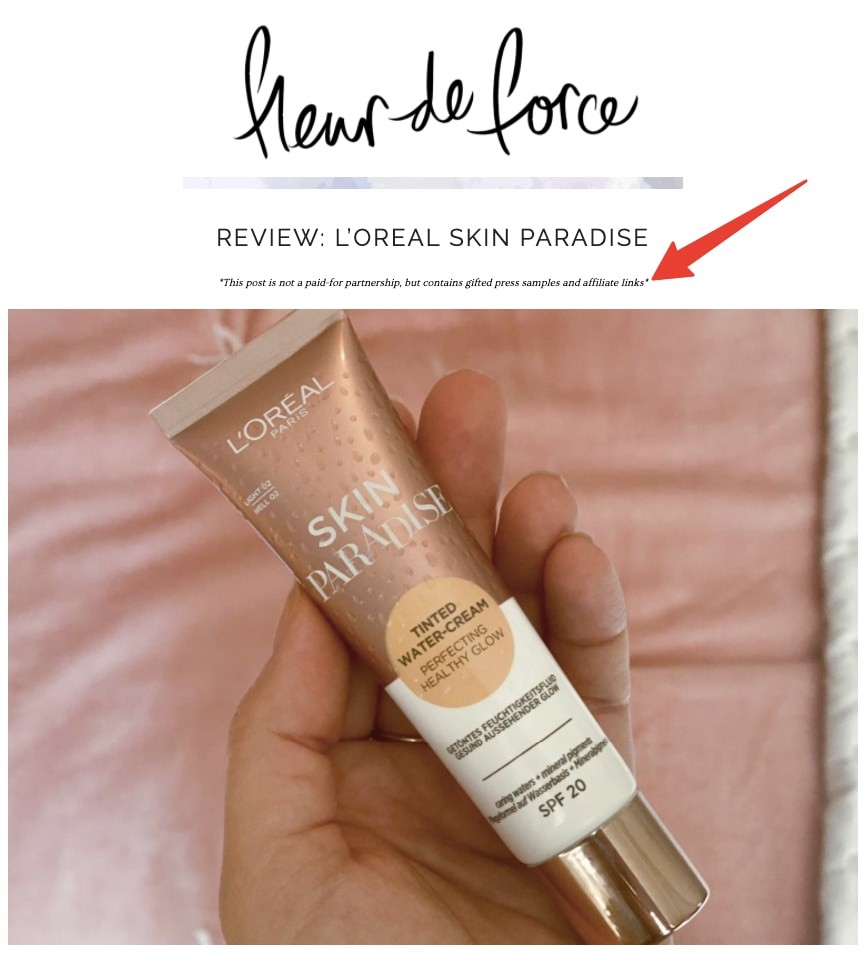
Fleur also (kind of) runs her own eCommerce store, giving readers the opportunity to shop her wardrobe — although it’s worth noting her online store is actually a bunch of affiliate links to products she recommends.
6 Fashion Blogs
We’ve looked at beauty and lifestyle, now let’s take a look at the adjacent — and sometimes overlapping — the world of the fashion blog.
If you’ve got a passion for fashion and love keeping abreast of all the latest style trends, starting a fashion blog could be the perfect way to bring in some passive income.
That’s why some of our favorite blogs that make money are in the fashion niche.
Who What Wear is one of the best-known fashion blogs.

According to Ahrefs, the three million monthly organic visitors it attracts are worth a cool $1.8 million a month.

Now that’s what we call a profitable blog niche.
If you want to know how the people behind Who What Wear make more money in a single month than the average NFL player earns in an entire season, take a look at the affiliate disclosure in the website footer:

If, like me, your eyesight isn’t great, it basically says that if you buy something through an affiliate link, it might earn a commission.
No shocks there.
The fashion niche is a perfect fit for affiliate marketing, because it’s literally all about recommending products.
In every fashion blog you write, there should be multiple opportunities to link to physical products — and every time someone buys one, you’ll make a cut of the sale.
7 Parenting Blogs
Full disclosure: I don’t have children (yet).
But even I know that parenting is difficult.
From maternity fashion to choosing a birthing plan to find the best baby products, there’s so much to think about.
Which explains the huge popularity of the parenting blog.
The parenting niche covers a whole range of blogs. There are mom blogs, dad blogs, co-parenting blogs, and probably plenty of others I haven’t listed here.
Once again, there’s a fair amount of crossover here with lifestyle blogs.
There are plenty of examples of bloggers who started out running a fashion or lifestyle-themed site and then pivoted into parenting or mom blogs when they got a little older.
One day, they’re writing about the hottest bars in Williamsburg, then the next, they’re discussing the pros and cons of water birthing.
At the same time, there are plenty of blogs that are solely dedicated to parenting, like Lucie’s List.
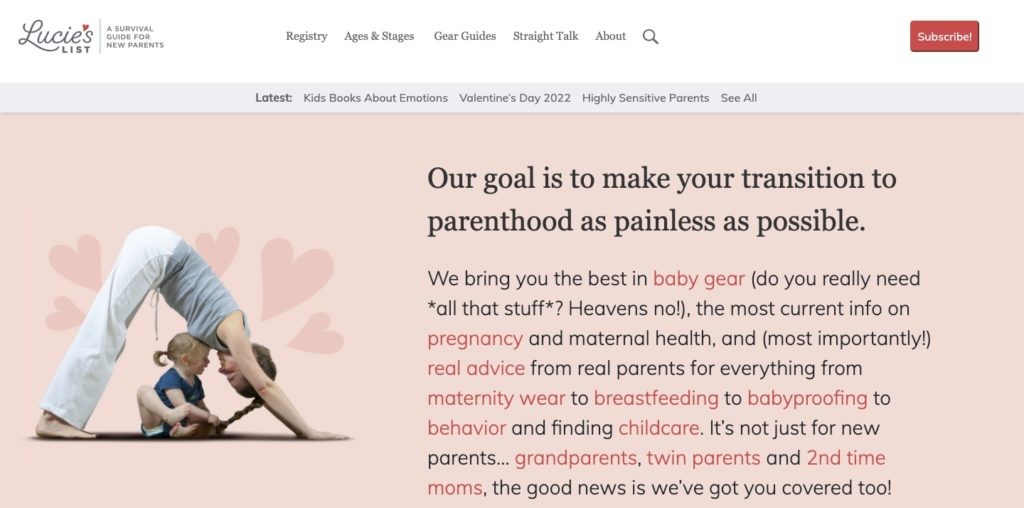
The website’s goal is to “make your transition to parenthood as painless as possible”, which essentially means providing lots of advice, information, and product reviews to soon-to-be parents.
One of the most successful parenting blogs around, it brings in an estimated 112,000 organic visitors a month, with a monthly value of close to $50,000, according to Ahrefs.

That’s a whole lot more than a job replacement income.
Lucie’s List appears to make most of its money from affiliate marketing:

It publishes guides on things like the best infant car seats and baby carriers, plus lots of informational content about the stages of the parental process, from pregnancy to preschool.
8 Marketing Blogs
Marketing is an extremely attractive blogging niche.
Why?
Because any online business might need marketing-related tips or services.
They might want help with keyword research, link-building, social media, or countless other topics.
If you’ve got expertise in any of those areas, starting a marketing blog could be a smart move.
Authority Hacker is a prime example of a marketing blog geared toward online entrepreneurs without tooting our own trumpets.
Specifically, it’s a marketing blog aimed at helping would-be affiliate marketers build profitable websites, covering everything from choosing the right niche to learning how to build links at scale without resorting to black hat tactics.

That gives us a wealth of monetization opportunities.
Whenever we publish a product-related blog post — such as reviews of WordPress themes and keyword research tools — we’ll incorporate affiliate links.
We also have a whole page of our website dedicated to our favorite marketing tools — the ones we use time and again across our own portfolio of authority websites. Again, we earn a commission if you click our affiliate link and buy one of those tools.
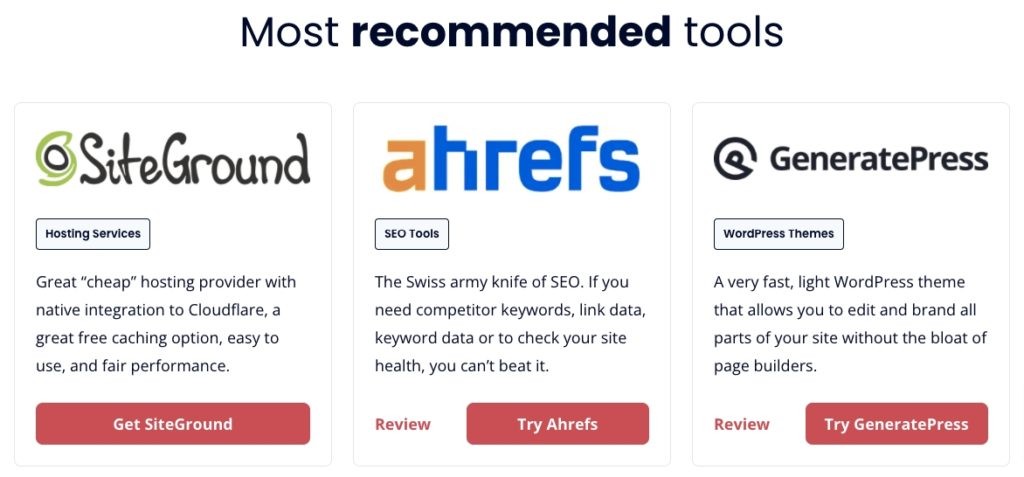
Of course, that’s not our primary means of making money.
Our main raison d’être is to promote our premium affiliate marketing training courses, The Authority Site System (aimed at beginners) and Authority Hacker Pro (for affiliates with established websites).
We charge money for those courses, and with more than 9,000 happy customers (and counting), we think we’re doing a pretty good job.
We even run our own affiliate program, paying up to $990 commission per sale, with a lifetime commission on other Authority Hacker products purchased by each referred customer.
9 Food Blogs
At the end of the day, we’ve all got to eat.
And therein lies the appeal of food blogs.
Whether you’re teaching people how to cook amazing cuisine, recommending high-quality kitchen appliances, or reviewing the best restaurants in your hometown, a food blog can help you explore your passion while earning a little (or a lot of) cash on the size.
Like travel, food is increasingly seen as aspirational and a way to show off our unique knowledge.
Just as travelers are always looking for the next hot off-the-beaten-path destination, foodies are searching for some obscure regional cuisine they can learn how to perfect to amaze their friends on Instagram and at dinner parties.
Dominican Cooking is one of our favorite food blogs. If you’ve ever tried bollitos de yuca, you’ll understand.

When it comes to monetization, the website has a few tricks up its sleeve.
For starters, it sells its own cookbooks. That’s an obvious opportunity for anyone who creates their own recipes.
What’s more, the site monetizes all its recipes by incorporating affiliate links to Amazon, which runs the world’s biggest affiliate marketing program.
So if you hit one of those links and buy any of the items listed in the site’s Amazon affiliate store, Dominican Cooking earns a small commission.
And, like lots of other blogs that make money, it runs banner ads — in this case through the CafeMedia network (rather than Google AdSense).
10 Pet Blogs
Furry, feathered, or scaly, we simply cannot get enough of pets.
According to the latest APPA National Pet Owners Survey, 70% of households in the US own a pet, equating to more than 90.5 million homes.
As any pet owner will tell you, having a pet isn’t cheap.
Partly because they’re just so damn cute.
Combined, US pet owners spent more than $103 billion on their pets in 2020, with just under half going on pet food and about one-fifth on accessories and medicines.
All of this means there are a whole lot of ways to make money from pet blogs.
The Spruce Pets is an example of a high-quality pet blog with bags of earning potential.

According to Ahrefs, it brings in a whopping 7.2 million organic visitors every month, and its organic traffic is worth an estimated $3.4 million a month.

Some of its revenue comes from advertising, with banner ads above the fold and along the sidebar in most articles.
And this is clearly also a website that brings in a lot of cash through pet affiliate programs.
A whole section of The Spruce Pets is dedicated to pet product reviews, all of which are monetized through affiliate links.
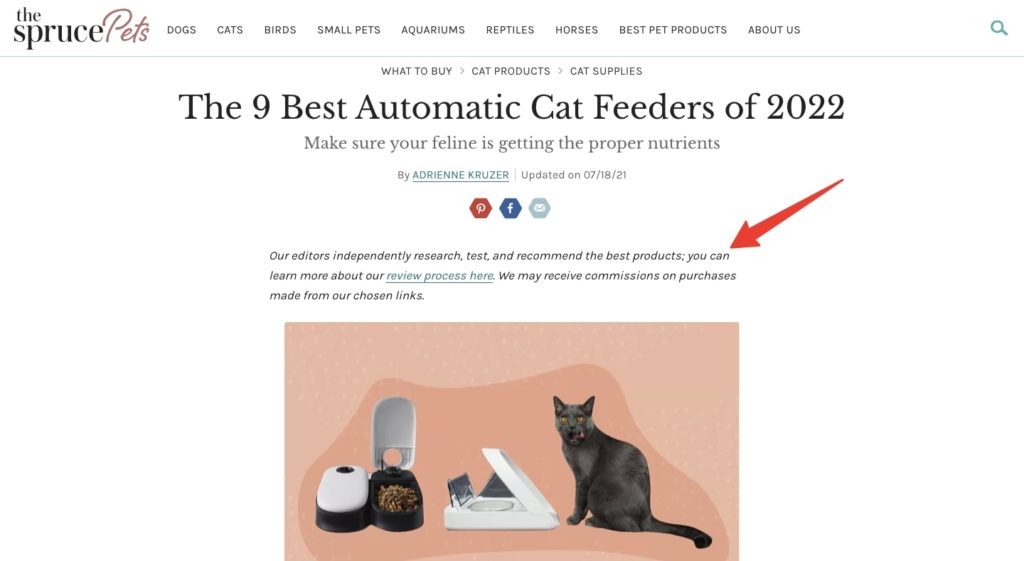
How Do Beginner Blogs Make Money?
Choosing a niche is a key part of figuring out how to make money blogging.
But while it’s important, it’s still only one piece of the puzzle.
If your blogging journey is going to be a success, you’ll have to discover an effective and consistent way to bring in revenue.
Here are four options to explore:
1. Target Low-Difficulty, High-Intent Keywords
Keyword research is one of the most crucial steps in monetizing your blog.
Your task at this stage is to look for keywords with commercial intent — that is, the things people might be searching for just before they make a purchase.
But you’re a new website.
You likely don’t have a ton of backlinks or authority at this stage, which limits your ability to rank for highly competitive terms.
That’s why you need to search for less-competitive niche keywords.
But on a basic level, if you want to find high-intent keywords fast, your best bet is to use a tool like Ahrefs.
Start by finding a website in your niche.
In this example, I’m going to use Travel Lemming.
Use Ahrefs’ organic keywords tool to search for keywords with commercial intent, such as terms including the word “best”.
Then limit the keyword difficulty to a maximum of 15.

That gives us a bunch of juicy high-intent, low-difficulty keywords to target, such as:
| Keyword | Monthly Volume | Difficulty |
|---|---|---|
| best hotels in salt lake city | 5,100 | 4 |
| best resorts in tulum | 1,500 | 11 |
| best small backpack | 500 | 12 |
2. Find a Unique Hook
It’s not enough to choose a profitable blog niche.
You also need to find your unique space within that niche.
In other words, it’s not enough to start a travel blog or a fashion website — there are millions of them already.
So why would anyone bother clicking on yours?
That’s why you need to “niche down” even further.
Rather than being a generalist travel blogger, create a travel blog that’s dedicated to helping people explore the world by train.
Or instead of launching yet another fashion blog, start one that’s dedicated to affordable party outfits.
The key here is to niche down just enough, without going so far that you only leave yourself with a tiny audience.
3. Sign Up for Ad Networks
Honestly, the easiest way to make a little money from your blog is to sign up for an ad network.
Not Google AdSense — as we’ve already noted, the payouts are so low that it’s just not worth your while.
Instead, opt for one of the more “generous” ad networks out there, like:
AdThrive
Guarantees to deliver 20% higher revenue per 1,000 impressions for website owners who switch from other networks.
Unfortunately, you can only apply if your site achieves a minimum of 100,000 monthly page views, with the majority of traffic coming from Australia, Canada, New Zealand, the UK, and the US.
Ezoic
More than 10,000 online publishers use Ezoic as their ad network. Unlike AdThrive, it’s open to websites of all sizes, although the most attractive terms are offered to sites with 10,000+ monthly visitors.
Mediavine
A full-service ad management solution, Mediavine works with publishers in any lifestyle-related niche — provided they create engaging long-form content and hit 50,000 sessions in the previous 30 days (per Google Analytics).
There’s just one small downside to ad networks:
If your technology blog or parenting site is crammed with banner ads, it can be pretty distracting to readers.
And if you scare them away with ads, they might not come back.
So it makes sense to wait until you’ve built up a consistent level of traffic and an engaged audience before you leverage an ad network’s earning potential.
4. Start Affiliate Marketing
Sure, we’re biased.
After all, we’ve earned a lot of money from affiliate marketing over the years.
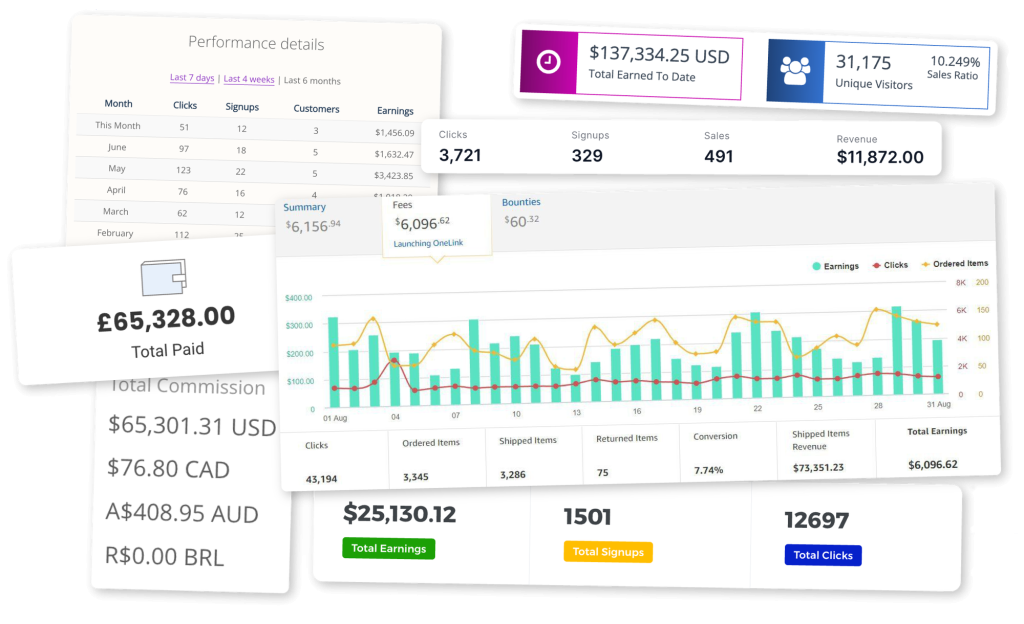
Still, we genuinely think affiliate marketing is the best way to monetize a blog.
Why?
Because if you’re already writing about products or services in your chosen niche, it’s so natural to add affiliate links.
And every time anyone clicks those links and makes a purchase, you receive a commission.
Depending on your niche, those commissions could run to hundreds of dollars from a single sale.
Conclusion
All blogs that make money have a few things in common.
Everyone has built an engaged audience by having a personal and meaningful conversation with their readers.
They’ve found a profitable niche.
They know what an amazing post looks like.
And they’ve found a consistent way (or lots of ways) to make money, whether through affiliate marketing, running an online course, or selling products in an online store.
It takes a lot of time and plenty of trial and error to get all those things right.

Comments
Post a Comment